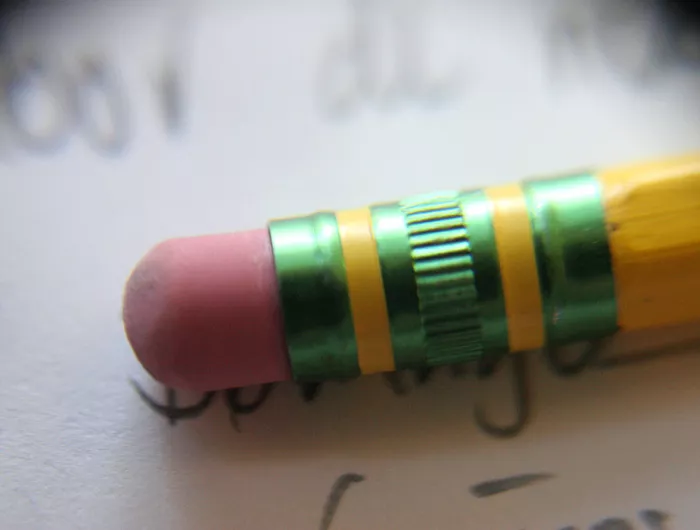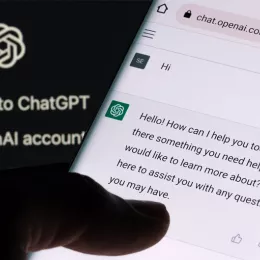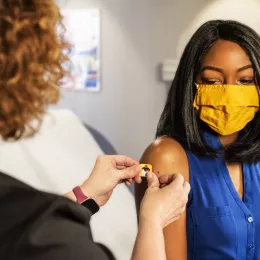Retraction distraction

Alex Morfin - Wikimedia Commons.
Beyond the Curve: Dr. Peter Lurie's Covid-19 blog
Retracted scientific papers are a lot like embarrassing family members. You would rather not have to deal with them, but they can sometimes cause serious problems and harm your reputation, so you can’t ignore them either.
Studies withdrawn after their posting or publication are retracted mostly because they’re found to be too unreliable or dishonest to stay published. Some are outright fraudulent while others are simply plagiarized. In effect, the journals are admitting that it would have been better if they had never published them in the first place.
Retracted studies have long been a problem in the scientific and medical worlds and continued to be so during the Covid-19 pandemic. At least 247 Covid-19 papers have been retracted so far (out of more than 275,000 published to date) and probably more will be or should be withdrawn. (1) Some of these studies became widely cited “evidence” (even to this day!) that ivermectin and hydroxychloroquine are effective against the coronavirus. Better evidence subsequently showed that neither is. (2)
Ironically, discredited papers actually get more attention in the mainstream media and on social media before they’re retracted compared with similar papers that are not destined to be withdrawn. (3) And it typically takes so long to retract these untrustworthy studies that by then the damage is done and the media has moved onto other news.
The biggest scientific con of the current pandemic thus far (other than the evidence-free assertions of the Trump administration and their monkeying with the government’s own scientific journals) is a retraction scandal. The two most prestigious medical journals in the world were forced to retract bogus Covid-19 papers early in the pandemic. Big black eyes for them and a cautionary tale for others.
In hindsight, it’s astonishing that these papers got as far as they did. A U.S. surgeon named Sapan Desai managed to fool other U.S. scientists and the peer reviewers of his papers into believing that his tiny, virtually unknown Illinois company called Surgisphere accomplished what no one else in the world had.
The company supposedly had collected the detailed electronic medical records of nearly 100,000 Covid-19 patients in 671 hospitals from every continent except Antarctica – all within the first few months of the pandemic. (4) Desai claimed his medical records were so good that they could reveal which of the drugs currently being used were working against the coronavirus. “With data like this, do we even need a randomized controlled trial?” he asked. (5)
The first of the three studies by Desai and his co-authors (one of whom was his brother-in-law) to go public was a preprint, meaning not-yet peer reviewed, that was posted online in April 2020. This asserted that Covid-19 patients in the Surgisphere database treated with the anti-parasitic drug ivermectin were more than twice as likely to survive as other patients. (6)
Later clinical trials clearly demonstrated that ivermectin is no more effective than a placebo against Covid-19, but that came way too late to prevent South American countries like Peru and Brazil from incorporating ivermectin into their treatment guidelines, based in part on this study. (7)
Within only a month, however, the paper was quietly removed and never returned to public view when critics began exposing critical problems in the next two papers by Desai and his co-authors that used the same database.
In May 2020, The New England Journal of Medicine peer-reviewed and published a second Surgisphere study, this time about the risk of death from Covid-19 in cardiovascular disease patients taking certain medications. (8)
But within a week, scientists were pointing out serious discrepancies and implausible numbers in the data. A relatively small number of hospitals accounted for a remarkably high proportion of all confirmed Covid-19 cases in their respective countries. Just three Turkish hospitals, for example, had records that represented nearly twice as many Covid-19 cases as there were in the entire country to that point. And the death rate for elderly patients in the Surgisphere database was 15 times lower than what other researchers were finding. Hmm.
A few weeks later, after others asked to see the data and Desai wouldn’t let them, The New England Journal of Medicine retracted the study. “We shouldn’t have published this,” the Journal’s Editor-in-Chief conceded.
Meanwhile, The Lancet, the United Kingdom’s premier medical journal, peer-reviewed and published a third Surgisphere study from Desai and his co-authors. This one claimed that taking the drug hydroxychloroquine increased the risk of death in Covid-19 patients. (9) The unexpected news stunned the research world and led the World Health Organization and other organizations to temporarily halt their clinical trials of the drug.
But epidemiologists and statisticians began questioning the study’s data and conclusions only a day after its publication. For example, the dosage of hydroxychloroquine used in the study’s U.S. hospitals exceeded what FDA recommended, which was very unlikely. And the number of Covid-19 cases in the study’s few Australian hospitals totaled more than the known total cases in that entire country.
Two weeks later, after more than 200 scientists from various countries challenged the integrity of the study, The Lancet retracted the paper. The journal’s Editor-in-Chief called it a “monumental fraud.” (Later studies were to prove definitively that hydroxychloroquine was ineffective and sometimes dangerous.)
Journalists were never unable to identify any of the 671 hospitals that allegedly contributed data to the Surgisphere database and, despite numerous requests, Desai never produced the data or a list of the hospitals for anyone to examine. Even his co-authors, who had signed statements that they personally verified the validity of the data as part of the submission process to the New England Journal of Medicine, hadn’t actually seen the data (shame on them!). Both of the embarrassed journals vowed to tighten up their editorial practices.
After more than 200 scientists from various countries challenged the integrity of the study, The Lancet retracted the paper.
In their brief lifetimes, however, these papers potentially caused tremendous harm to patients around the world, tarnished the reputation of two medical journals that doctors rely on for reliable information, and highlighted serious shortcomings in the scientific publication process.
Unfortunately, poorly done or fraudulent research doesn’t slink away quietly in the night. The bogus paper in the New England Journal of Medicine was cited in 582 scientific articles during the year after its retraction, a huge number for any paper at any time. Just 20 percent of these articles noted that the study had been retracted, even though the medical database PubMed clearly declared that it had. (10)
The harm to the fight against Covid-19 caused by papers that should never have been published continues to this day. A month ago, the website Retraction Watch reported the retraction of the most recent of ten tainted ivermectin studies. The International Journal of Infectious Diseases finally withdrew an abstract it published online last year about an amateurish ivermectin study that had been widely lauded and misrepresented on social media. (11)
Written for presentation at a scientific conference by a medical student and some of his colleagues at the University of Miami, the analysis purported to show that Covid-19 patients were less likely to die if they were treated with ivermectin instead of the FDA-approved drug remdesivir.
But the study couldn’t possibly show any real difference between the two drugs. Seriously ill, hospitalized older Covid-19 patients prescribed remdesivir were compared with younger, less-sick, non-hospitalized patients given ivermectin. No surprise that the older and sicker patients were more likely to die. The student lead author later conceded to the Associated Press that his study was “very weak.” (12)
However, before its retraction, the abstract circulated online for six months, attracting more than 14,000 tweets and retweets on Twitter; more than 5,000 shares, likes and comments on Facebook; and 12 mentions in news articles. (13)
In March of this year, the abstract was applauded by one of the most popular Covid-19 contrarians on YouTube, John Campbell, who has 2.7 million subscribers to his video channel. Campbell claimed the study “unequivocally” showed the life-saving value of ivermectin. “This is just huge,” he told viewers. (14)
Unequivocal and huge didn’t last long. A few days later, Campbell quietly deleted from the video his comments about the study after getting blistering pushback on Twitter for his misleading analysis of the study. But by then Campbell’s video had been viewed at least 777,000 times and shared more than 10,000 times.
Alas, the retracted abstract still is making the rounds. It now lives on in a kind of protracted afterlife as an important part of the “evidence” on a major Canadian-registered pro-ivermectin website that claims the drug cuts the death rate from Covid-19 in half (15). No doubt it will continue to be cited by other researchers unaware (or unconcerned) that it has been discredited.
The Covid-19 pandemic has exposed numerous weaknesses in our public health response to crises. One challenge is how we facilitate the rapid spread of potentially life-saving discoveries during a health emergency, while keeping out or quickly removing worthless or even fraudulent “research.”
The traditional peer-review process of vetting scientific research before publication traditionally takes many months, sometimes years, and is clearly too slow in a global emergency. For this pandemic, a tsunami of unfiltered preprint reports – more than 6,000 during the first four months -- filled the need to spread information globally.
Often, this has been a blessing. Early in the pandemic, UK researchers posted on a preprint website their carefully-analyzed findings that the commonly prescribed steroid dexamethasone could reduce the rate of death by up to a third in critically ill Covid-19 patients. Within a week, the drug was being used all over the world to treat very sick patients. Not for nearly another month was the full peer-reviewed study published in the New England Journal of Medicine. (16)
But the easy circulation of preprints has also been a curse. Just ask Peru, Bolivia, Venezuela, India, South Africa, and Slovakia, all of whom made the use of ivermectin national policy after early claims for its effectiveness circulated on the Internet. Peru, India, and South Africa have since backed away from ivermectin. (17)
The challenge in the future will be for the scientific community to commit the necessary resources to improve the quality and reliability of research before it’s made available to the world, but without impeding the quick circulation of important findings. Not an easy assignment.
References
https://retractionwatch.com/retracted-coronavirus-covid-19-papers/
https://www.cspinet.org/blog/ivermectin-hydroxychloroquine-sheeps-clothing
Dynamics of cross-platform attention to retracted papers | PNAS
https://www.the-scientist.com/features/the-surgisphere-scandal-what-went-wrong--67955
https://www.isglobal.org/documents/10179/6022921/Patel+et+al.+2020+version+1.pdf
https://www.tctmd.com/news/retracted-over-fraud-concerns-surgisphere-acearb-study-still-gets-cited
https://retractionwatch.com/2022/06/03/widely-touted-abstract-on-ivermectin-and-covid-19-retracted/






